This is part one in the series “Arabs Say…” featuring Arabic speakers from around the Arab world who gives their views on their language and how it is used today. Of course, we should keep in mind that these are personal views and do not represent the views of everyone in their countries. Still, we can learn a lot about the overall linguistic situation and some commonalities and regional differences.
Does everyone in your country speak the same dialect of Arabic?
Are there any differences in speaking styles between urban and rural areas, regions, social classes, religions, or generations?
I believe everyone in Morocco can understand each other. Although there are a few differences in the Moroccan Arabic dialect from region to region, it doesn't affect the flow of the conversation. Berbers speak the Amazigh language, but most of them can speak الدّارجة (colloquial Arabic), as well. When it comes to everyday conversation, there's no difference between social classes. We speak the same dialect. But when it comes to working, although we use الدّارجة, we are heavily influenced by French. In 1912, France imposed French on the Moroccan education system, and since then, French, along with Arabic, have been the two languages used most in business, diplomacy, and government. I haven't noticed much difference in the language used by different generations. Every now and then, I hear some words I've never heard before, and an older person would tell me that it was used a lot back in the day but not anymore. But when it comes to speaking style, it's the same between the younger and older generations.
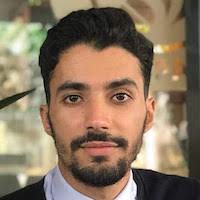
I believe everyone in Morocco can understand each other. Although there are a few differences in the Moroccan Arabic dialect from region to region, it doesn't affect the flow of the conversation. Berbers speak the Amazigh language, but most of them can speak الدّارجة (colloquial Arabic), as well. When it comes to everyday conversation, there's no difference between social classes. We speak the same dialect. But when it comes to working, although we use الدّارجة, we are heavily influenced by French. In 1912, France imposed French on the Moroccan education system, and since then, French, along with Arabic, have been the two languages used most in business, diplomacy, and government. I haven't noticed much difference in the language used by different generations. Every now and then, I hear some words I've never heard before, and an older person would tell me that it was used a lot back in the day but not anymore. But when it comes to speaking style, it's the same between the younger and older generations.

Most Tunisians speak in darija (dialect), but there is a small minority of Berbers, estimated at 2%, who speak the Amazigh language. The Tunisian darija (that is, Tunisian Colloquial Arabic) is a mix between standard Arabic and French; and there is some minor influence on the vocabulary from Maltese, Italian, and Turkish. There is some difference in the style of speaking. The upper class usually speaks in the French language or mixes the Tunisian darija with French, while the lower class is good at creating new words that the upper class can't understand. I don't think there is any huge difference in the style of speaking between the educated and uneducated. The only difference between old and young people is that the young generation is influenced by technology and the internet. They are more open to languages like English, and their style of speaking has changed because of the media and the internet, which contributed to the construction of new words and symbols.
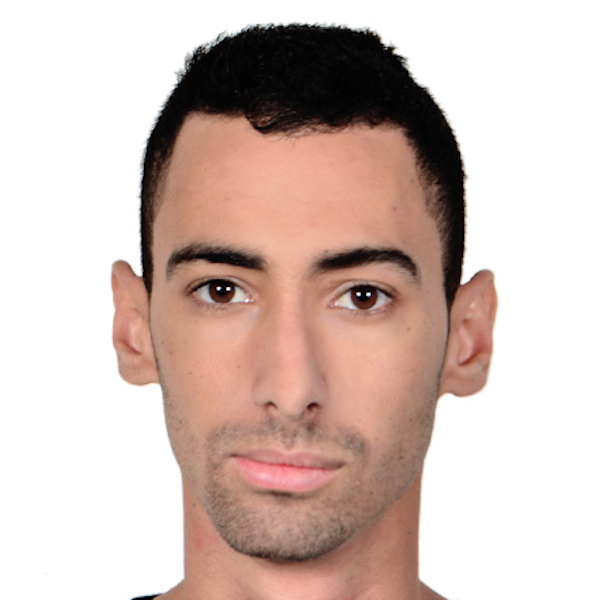
Most Tunisians speak in darija (dialect), but there is a small minority of Berbers, estimated at 2%, who speak the Amazigh language. The Tunisian darija (that is, Tunisian Colloquial Arabic) is a mix between standard Arabic and French; and there is some minor influence on the vocabulary from Maltese, Italian, and Turkish. There is some difference in the style of speaking. The upper class usually speaks in the French language or mixes the Tunisian darija with French, while the lower class is good at creating new words that the upper class can't understand. I don't think there is any huge difference in the style of speaking between the educated and uneducated. The only difference between old and young people is that the young generation is influenced by technology and the internet. They are more open to languages like English, and their style of speaking has changed because of the media and the internet, which contributed to the construction of new words and symbols.

For Sudanese Arabic, it’s very different from one location to the other one. For example, in the western states, the word for "women" is عَويْن a’ween. Others, from the northern state, say نْساويين nasaween, while people from Jazeera state say حْريم hareem. And there are many more examples like this. For example, to something as "mine," people from the northern state say هِيلي heeli, but in the river Nile state, they say اللّتي/اللِيلِي allati/alleeli. But most people in Khartoum state say حقّي/بِتاعِي Haggi/bita’ai. Of course, there are also big differences in dialect between groups of people. I feel like the more educated you are, and the higher your economical class is, the more your dialect tends to resemble الفصحى (Modern Standard Arabic). This is also related to centralization, where we are more exposed to things than are country people. Speaking style differs from the educated to the uneducated, and even among different religious denominations. And, of course, from city to country, the way people speak differs because in the capital, in a general sense, people tend to use more formal Arabic, whereas the more you move outwards to the rural areas people use language more flexibly, using their own regionalisms that are based on their own experiences, culture, heritage, and everyday life. Younger people (of all nationalities!) tend to speak in slang. They have different vocabulary than older people and different speaking styles. And I think this is due to the difference in their surrounding environment, which includes different external and internal forces, such as technological advances, exposure to different cultures, etc.
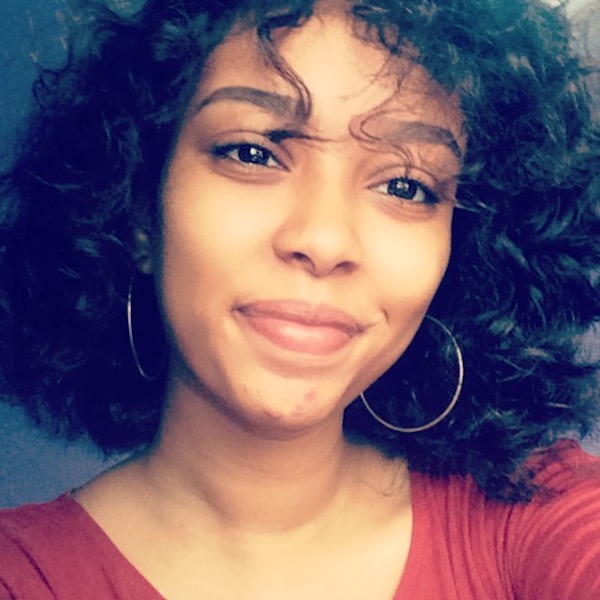
For Sudanese Arabic, it’s very different from one location to the other one. For example, in the western states, the word for "women" is عَويْن a’ween. Others, from the northern state, say نْساويين nasaween, while people from Jazeera state say حْريم hareem. And there are many more examples like this. For example, to something as "mine," people from the northern state say هِيلي heeli, but in the river Nile state, they say اللّتي/اللِيلِي allati/alleeli. But most people in Khartoum state say حقّي/بِتاعِي Haggi/bita’ai. Of course, there are also big differences in dialect between groups of people. I feel like the more educated you are, and the higher your economical class is, the more your dialect tends to resemble الفصحى (Modern Standard Arabic). This is also related to centralization, where we are more exposed to things than are country people. Speaking style differs from the educated to the uneducated, and even among different religious denominations. And, of course, from city to country, the way people speak differs because in the capital, in a general sense, people tend to use more formal Arabic, whereas the more you move outwards to the rural areas people use language more flexibly, using their own regionalisms that are based on their own experiences, culture, heritage, and everyday life. Younger people (of all nationalities!) tend to speak in slang. They have different vocabulary than older people and different speaking styles. And I think this is due to the difference in their surrounding environment, which includes different external and internal forces, such as technological advances, exposure to different cultures, etc.

There are different dialects [of Egyptian Colloquial Arabic] across Egypt. For instance, people in Alexandria use words that differentiate them from people in Cairo. Likewise, the dialect of people who live in Upper Egypt is different from that of Cairo and Alex. People who live in Nuba speak the Nubian language–a language I don't understand at all. They also know how to speak Arabic, so they mix the two langauges together. People in Alexandria use the word فلافل to refer to a popular Egyptian dish "falafel," while in Cairo, people refer to this dish as طعمية. Also, in Alex, people say "احيه" to express being astonished or worry about something. But in Cairo this word is unacceptable and considered a bad word. When they hear someone say this word, they can tell that they are from Alex. Another example is "eraser," which is جومة in Alex and استيكة in Cairo. In Upper Egypt, people say أني instead of أنا ("I" in English). They also pronounce the letter ق as ج. For example, they say جاعد instead of قاعد ("sitting") and أجول instead of أقول ("saying") in English. In Egypt, people of higher social classes tend to use some English words while talking. Sometimes they don't pronounce the English words correctly, but they use them just to show that they are educated and classy. Concerning religion, in Egypt Muslims might use some religious phrases that Christians don't use, such as جزاك الله خير for "thank you." And Christians–but not Muslims–say ربنا يقدس روحه (which means "may God sanctifies his soul") when someone dies. Older people tend not to use English words through their speech. They also don't use new words invented by young people. For example, young people nowadays in Egypt use slang words like خلع (which means when someone leaves something or when someone escapes from something boring). The slang term قشطة is used to show approval. Old people don't use such slang words. They tend to be more formal than that.
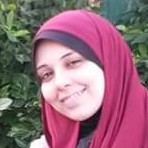
There are different dialects [of Egyptian Colloquial Arabic] across Egypt. For instance, people in Alexandria use words that differentiate them from people in Cairo. Likewise, the dialect of people who live in Upper Egypt is different from that of Cairo and Alex. People who live in Nuba speak the Nubian language–a language I don't understand at all. They also know how to speak Arabic, so they mix the two langauges together. People in Alexandria use the word فلافل to refer to a popular Egyptian dish "falafel," while in Cairo, people refer to this dish as طعمية. Also, in Alex, people say "احيه" to express being astonished or worry about something. But in Cairo this word is unacceptable and considered a bad word. When they hear someone say this word, they can tell that they are from Alex. Another example is "eraser," which is جومة in Alex and استيكة in Cairo. In Upper Egypt, people say أني instead of أنا ("I" in English). They also pronounce the letter ق as ج. For example, they say جاعد instead of قاعد ("sitting") and أجول instead of أقول ("saying") in English. In Egypt, people of higher social classes tend to use some English words while talking. Sometimes they don't pronounce the English words correctly, but they use them just to show that they are educated and classy. Concerning religion, in Egypt Muslims might use some religious phrases that Christians don't use, such as جزاك الله خير for "thank you." And Christians–but not Muslims–say ربنا يقدس روحه (which means "may God sanctifies his soul") when someone dies. Older people tend not to use English words through their speech. They also don't use new words invented by young people. For example, young people nowadays in Egypt use slang words like خلع (which means when someone leaves something or when someone escapes from something boring). The slang term قشطة is used to show approval. Old people don't use such slang words. They tend to be more formal than that.

Not exactly the same dialect, no. For example, here in Egypt, there are differences from one region to another. The dialect in industrial cities like Cairo and Giza differs from that of rural towns. Still, for sure, they're not entirely different–it's a difference of some vocabulary that distinguishes people who grew up in rural areas and upper Egypt from those that live in the capital. It's not just vocabulary, but also pronunciation. They might use the same word but with a different pronunciation. This also goes for the coastal cities like Alexandria and Port Said, where they mostly have differences in pronunciation, not vocabulary. Another interesting point: In the very south of Egypt, there's a region called النوبة (Nubia). In this part of Egypt, they don't speak a different dialect but rather a different language called نوبي (I honestly don't know what is the English translation of the name of this language is).
We can merge the "upper-class and highly-educated" into one group and "working-class plus low-educated and uneducated" in another group.
There are some differences in the style of speaking. For example, when someone from the upper-class or high-educated class speaks, they may use some English terms during their conversation, and they may try to pronounce them in an American accent. In contrast, the low-educated or uneducated class speak Egyptian Arabic without any additional terms from English. They may use some a new Egyptian slang term just invited yesterday or a week ago and put a meaning to it and start using it; some people refer to these words as "street words," and some of the upper-class refuse to use these terms. Some of the low-educated or uneducated class refuse to use the upper-class terms and would feel ashamed to use them as if they were just a "green boy" if they used these terms.
Here in Egypt, both of these classes can agree on a point which is that "from the 1950s until the 1980s, people were so civilized." Back then, people mostly spoke in الفصحى (MSA). Even when people used the Egyptian dialect, they would just use a word or two of it in their speech. The upper-class would use MSA a lot. Nowadays, the situation is different. If you use MSA, you will get surprised looks, and it will be a little weird, and some people may not understand you.
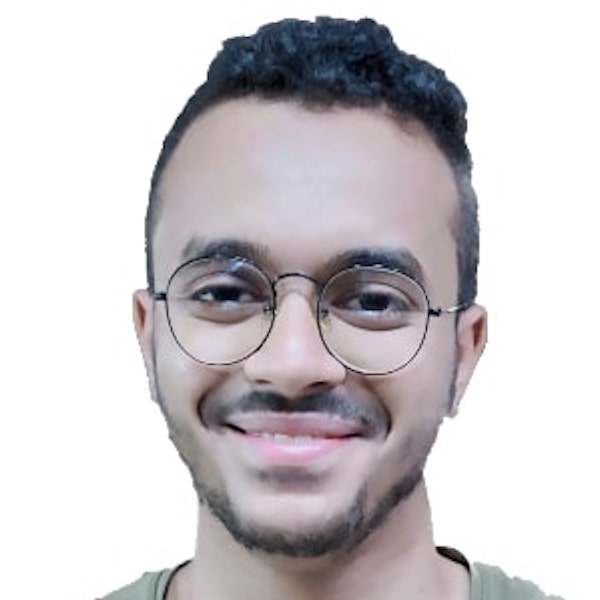
Not exactly the same dialect, no. For example, here in Egypt, there are differences from one region to another. The dialect in industrial cities like Cairo and Giza differs from that of rural towns. Still, for sure, they're not entirely different–it's a difference of some vocabulary that distinguishes people who grew up in rural areas and upper Egypt from those that live in the capital. It's not just vocabulary, but also pronunciation. They might use the same word but with a different pronunciation. This also goes for the coastal cities like Alexandria and Port Said, where they mostly have differences in pronunciation, not vocabulary. Another interesting point: In the very south of Egypt, there's a region called النوبة (Nubia). In this part of Egypt, they don't speak a different dialect but rather a different language called نوبي (I honestly don't know what is the English translation of the name of this language is).
We can merge the "upper-class and highly-educated" into one group and "working-class plus low-educated and uneducated" in another group.
There are some differences in the style of speaking. For example, when someone from the upper-class or high-educated class speaks, they may use some English terms during their conversation, and they may try to pronounce them in an American accent. In contrast, the low-educated or uneducated class speak Egyptian Arabic without any additional terms from English. They may use some a new Egyptian slang term just invited yesterday or a week ago and put a meaning to it and start using it; some people refer to these words as "street words," and some of the upper-class refuse to use these terms. Some of the low-educated or uneducated class refuse to use the upper-class terms and would feel ashamed to use them as if they were just a "green boy" if they used these terms.
Here in Egypt, both of these classes can agree on a point which is that "from the 1950s until the 1980s, people were so civilized." Back then, people mostly spoke in الفصحى (MSA). Even when people used the Egyptian dialect, they would just use a word or two of it in their speech. The upper-class would use MSA a lot. Nowadays, the situation is different. If you use MSA, you will get surprised looks, and it will be a little weird, and some people may not understand you.

Spoken dialects of Palestinian Arabic vary among people in my country. For example, to say someone is "sitting," people in the southern area say (kaa3ed) كاعد; the upper-class and educated say (2aa3ed) آعد; in rural areas, they say (gaa3ed) جاعد (while the original word in MSA is قاعد or جالس.
So, the dialect among people varies by social or economic class, education, and city/country people. However, there are no differences due to the religion of people, whether they are Christian, Sunni, Shiite, or Muslim. But there are significant differences between old and young people due to the gap between generations. For pharmacy, said, and toilet, old people say farmashia, kal/gal, and Hammaam, while young people say Saidalia, 2aal, and toilet.
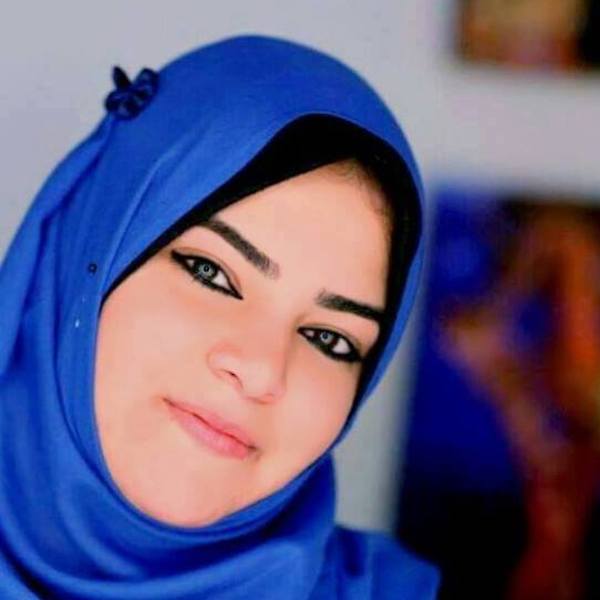
Spoken dialects of Palestinian Arabic vary among people in my country. For example, to say someone is "sitting," people in the southern area say (kaa3ed) كاعد; the upper-class and educated say (2aa3ed) آعد; in rural areas, they say (gaa3ed) جاعد (while the original word in MSA is قاعد or جالس.
So, the dialect among people varies by social or economic class, education, and city/country people. However, there are no differences due to the religion of people, whether they are Christian, Sunni, Shiite, or Muslim. But there are significant differences between old and young people due to the gap between generations. For pharmacy, said, and toilet, old people say farmashia, kal/gal, and Hammaam, while young people say Saidalia, 2aal, and toilet.

Most of the vocabulary is the same, and the differences in Jordanian Arabic are few and easy to understand by any Jordanian. For example, people in Amman say كيفك ("How are you?"), but people from Karak say كيفكي, and sometimes the same word might be pronounced differently in different locations. Some words are only used by certain groups. The lower-class people have their own words that upper-class people would be ashamed to use or feel are degrading. Of course, there is a huge difference between the words used by older people and young people. Some of the words that the elderly use can’t be understood by young people. For example, they use some different words, such as سهله, which has the same meaning as الأرض ("ground").
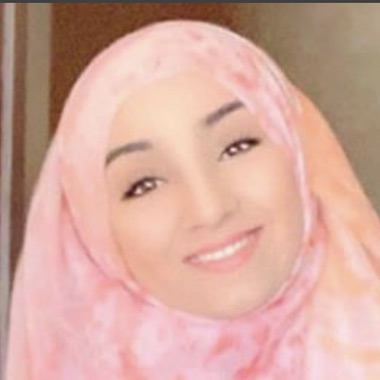
Most of the vocabulary is the same, and the differences in Jordanian Arabic are few and easy to understand by any Jordanian. For example, people in Amman say كيفك ("How are you?"), but people from Karak say كيفكي, and sometimes the same word might be pronounced differently in different locations. Some words are only used by certain groups. The lower-class people have their own words that upper-class people would be ashamed to use or feel are degrading. Of course, there is a huge difference between the words used by older people and young people. Some of the words that the elderly use can’t be understood by young people. For example, they use some different words, such as سهله, which has the same meaning as الأرض ("ground").

Everybody speaks the same dialect. However, the accent may differ from district to district and even from neighborhood to neighborhood. A few words borrowed from French or English (depending on whether the person is francophone or anglophone) are used during speech. Upper-class groups use French words when they speak, and the accent seems very soft and "effeminate." Country people use mostly Lebanese with a strong accent, which may seem aggressive and harsh. Educated people and university students or graduates tend to use English words when they speak. Also, the use of English terms is present in business situations, especially for business jargon. Also, the accent may differ by sects and cities. People move to Beirut, the capital, from all over Lebanon, so there are different accents in different districts of Beirut, depending on where the people living in those districts of Beirut originally came from. The standard, modern Beiruti accent is highly regarded as a classy accent that is soft. It is the accent on TV. Many ā sounds in MSA words are replaced by the ē sound in Beiruti Lebanese Arabic. The old Beiruti accent spoken among older generations is harsh and has a lot of heavy consonants; its vowels are a bit nasalized and elongated. Sunnis, as well as people from Sidon, replace many ē sounds in words with an ō sound. Shiites, or people from the south of Lebanon, replace ā with ē and add š (ـش) to the end of negative verbs. Christians tend to use more French terms. People from the north of Lebanon, such as Tripoli, sometimes use totally different words to designate an object that many Lebanese don't understand. Their accent seems harsh, and they tend to use damma in the first syllable and kasra in the last syllable of words, and most ā sounds are replaced by ō and ē sounds. The Druze and people from Mount Lebanon (Aley) tend to pronounce ق as q. In contrast, other Lebanese usually pronounce it as hamza but may alternate between two accents and pronunciations for the same word.

Everybody speaks the same dialect. However, the accent may differ from district to district and even from neighborhood to neighborhood. A few words borrowed from French or English (depending on whether the person is francophone or anglophone) are used during speech. Upper-class groups use French words when they speak, and the accent seems very soft and "effeminate." Country people use mostly Lebanese with a strong accent, which may seem aggressive and harsh. Educated people and university students or graduates tend to use English words when they speak. Also, the use of English terms is present in business situations, especially for business jargon. Also, the accent may differ by sects and cities. People move to Beirut, the capital, from all over Lebanon, so there are different accents in different districts of Beirut, depending on where the people living in those districts of Beirut originally came from. The standard, modern Beiruti accent is highly regarded as a classy accent that is soft. It is the accent on TV. Many ā sounds in MSA words are replaced by the ē sound in Beiruti Lebanese Arabic. The old Beiruti accent spoken among older generations is harsh and has a lot of heavy consonants; its vowels are a bit nasalized and elongated. Sunnis, as well as people from Sidon, replace many ē sounds in words with an ō sound. Shiites, or people from the south of Lebanon, replace ā with ē and add š (ـش) to the end of negative verbs. Christians tend to use more French terms. People from the north of Lebanon, such as Tripoli, sometimes use totally different words to designate an object that many Lebanese don't understand. Their accent seems harsh, and they tend to use damma in the first syllable and kasra in the last syllable of words, and most ā sounds are replaced by ō and ē sounds. The Druze and people from Mount Lebanon (Aley) tend to pronounce ق as q. In contrast, other Lebanese usually pronounce it as hamza but may alternate between two accents and pronunciations for the same word.

There are a lot of Arabic dialects in Syria. We can divide the Syrian dialects into four basic groups that follow geographical regions. These four groups have big differences from each other. Each group has many dialects of its own, but they with smaller differences. For example, the word for "what?" in Aleppo is إشّو, while in most Syrian cities, it is شو. And then, there are cities where people say أشو or شْنو. Another example is "How are you?" In Aleppo, it's شْلوْنك, but in most other places, it's كيفك. And in some cities, it's even شْخبارك or شْلوْنْج. Generally, the educated, the upper-class, and business professionals try to use gentler and smoother language; they avoid strong, old, rough words or traditional words. You can notice that the upper-class people, especially girls and women, try to use English or French words just to appear cool or gentle. Older people use old and traditional words and terms related to there native dialects. But younger people use such words less and are unsure of what they even mean, because a lot of these words have foreign origin (Turkish and French), as Syria used to be part of the Ottoman and French empires. These young people weren't alive back then, and they do not know their origins. The young generation, especially among the educated, use newer borrowings from English and French.
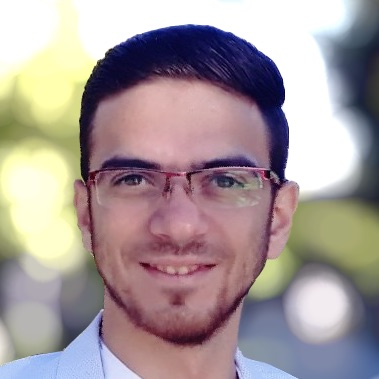
There are a lot of Arabic dialects in Syria. We can divide the Syrian dialects into four basic groups that follow geographical regions. These four groups have big differences from each other. Each group has many dialects of its own, but they with smaller differences. For example, the word for "what?" in Aleppo is إشّو, while in most Syrian cities, it is شو. And then, there are cities where people say أشو or شْنو. Another example is "How are you?" In Aleppo, it's شْلوْنك, but in most other places, it's كيفك. And in some cities, it's even شْخبارك or شْلوْنْج. Generally, the educated, the upper-class, and business professionals try to use gentler and smoother language; they avoid strong, old, rough words or traditional words. You can notice that the upper-class people, especially girls and women, try to use English or French words just to appear cool or gentle. Older people use old and traditional words and terms related to there native dialects. But younger people use such words less and are unsure of what they even mean, because a lot of these words have foreign origin (Turkish and French), as Syria used to be part of the Ottoman and French empires. These young people weren't alive back then, and they do not know their origins. The young generation, especially among the educated, use newer borrowings from English and French.

Generally speaking, we have three dialects of Arabic in Iraq. The north, south, and central part of the country each has its own dialect that any Iraqi can tell apart. The difference comes in many varieties. For example, in Baghdad, people say هواية which means "a lot." The only difference between classes is regionalisms. The upper-class throughout the country is known for speaking the Baghdadi dialect because it has more prestige. In general, the speaking style of the older generation has many differences from that of younger people. Older people use a lot of words that young people find hard and sometimes impossible to understand.
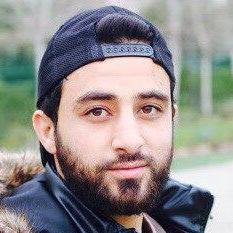
Generally speaking, we have three dialects of Arabic in Iraq. The north, south, and central part of the country each has its own dialect that any Iraqi can tell apart. The difference comes in many varieties. For example, in Baghdad, people say هواية which means "a lot." The only difference between classes is regionalisms. The upper-class throughout the country is known for speaking the Baghdadi dialect because it has more prestige. In general, the speaking style of the older generation has many differences from that of younger people. Older people use a lot of words that young people find hard and sometimes impossible to understand.

I would say that there are distinct differences. I can tell by someone’s dialect what city they are from. Every Saudi Arabic dialect has different words to describe an object. For example, in my city, we call rice عيش (literally “living”), but in other parts of the country, عيش means “bread.” Another example is “cooking pot.” In Qatif, it is صفرية, but in other parts of the country, they call it قدر. Usually, people who are educated and from the middle or upper-class speak in the dialect, of course, but tend to use less dialect “slang.” They will also use some words from other dialects because of their interactions with people from different parts of the country. But poor and uneducated will speak the dialect with more local slang words because they don’t usually interact with people from different parts of the country. Older people speak the pure dialect and use distinctively more dialect words than young people. Sometimes, it’s hard for younger people to understand what older adults are saying fully. Younger people tend to prefer slang from English and other dialects (due to more interactions with other people) over traditional slang words from the dialect.
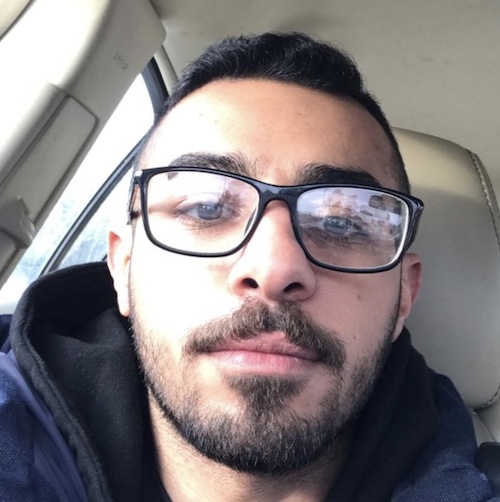
I would say that there are distinct differences. I can tell by someone’s dialect what city they are from. Every Saudi Arabic dialect has different words to describe an object. For example, in my city, we call rice عيش (literally “living”), but in other parts of the country, عيش means “bread.” Another example is “cooking pot.” In Qatif, it is صفرية, but in other parts of the country, they call it قدر. Usually, people who are educated and from the middle or upper-class speak in the dialect, of course, but tend to use less dialect “slang.” They will also use some words from other dialects because of their interactions with people from different parts of the country. But poor and uneducated will speak the dialect with more local slang words because they don’t usually interact with people from different parts of the country. Older people speak the pure dialect and use distinctively more dialect words than young people. Sometimes, it’s hard for younger people to understand what older adults are saying fully. Younger people tend to prefer slang from English and other dialects (due to more interactions with other people) over traditional slang words from the dialect.

Well, here in Oman we have eight governorates with 61 states, and each one of them has its own unique dialect words. But all in all, the general dialect is not that different, with the possible exception of the southern governorate of Dufar, where people speak a dialect that is a little bit harder to understand because they use so many unique dialect words. For example, in the capital Muscat, we call "snake" غول, but they say حنش in Dufar. But the differences in speaking style are really only regional, and not by class or education. And as I said before, the differences aren't that great, so we understand each other and are often familiar with the words used in other states. In the capital, we use a mixture of words from many states. To be honest, there's not a huge difference between generations, either. Younger people learn the language from their elders–it's a way of maintaining culture and traditions. That said, old people do use some words we young people don't really understand. In my case, it's because I don't use them, so I get confused when I hear them.
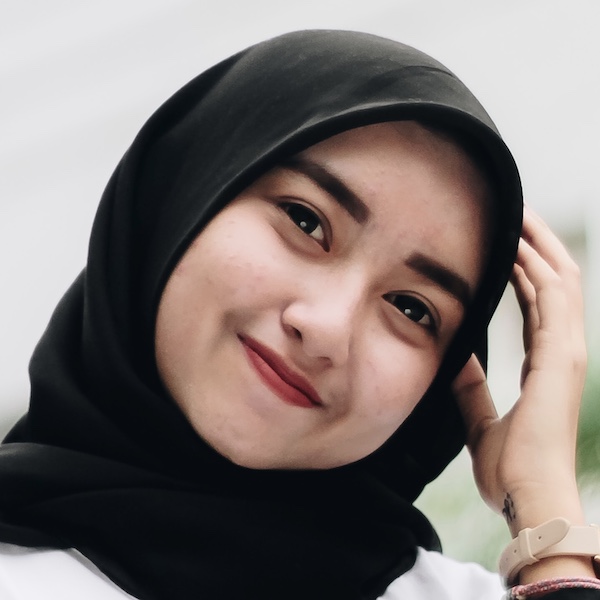
Well, here in Oman we have eight governorates with 61 states, and each one of them has its own unique dialect words. But all in all, the general dialect is not that different, with the possible exception of the southern governorate of Dufar, where people speak a dialect that is a little bit harder to understand because they use so many unique dialect words. For example, in the capital Muscat, we call "snake" غول, but they say حنش in Dufar. But the differences in speaking style are really only regional, and not by class or education. And as I said before, the differences aren't that great, so we understand each other and are often familiar with the words used in other states. In the capital, we use a mixture of words from many states. To be honest, there's not a huge difference between generations, either. Younger people learn the language from their elders–it's a way of maintaining culture and traditions. That said, old people do use some words we young people don't really understand. In my case, it's because I don't use them, so I get confused when I hear them.

Participants answered the questions in English. Minor edits have been made for grammar and punctuation, as well a for conciseness and clarity without changing the message or meaning intended.

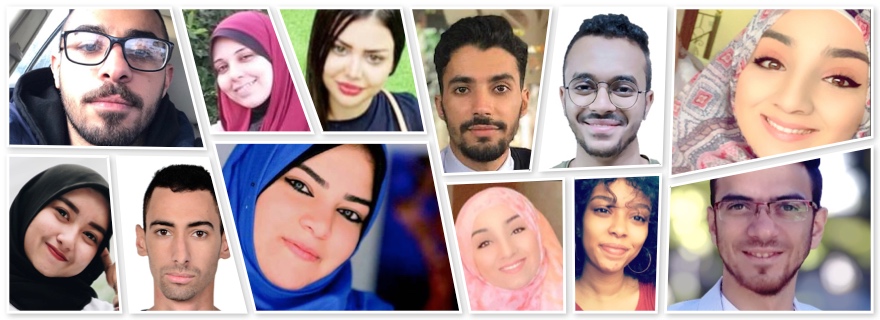
This is true. I’ve heard that there are upwards of 4 dialects within Syria alone; Damascene is its own dialect, that of Homs and Hama are closer to Lebanese, and the dialects near Palmyra (Tadmur) and Deir-ez-Zor are closer to Berber/Iraqi than to Levantine.
Kees Versteegh’s wonderful book “The Arabic Language,” although a bit of a dry read, helps point out the divergences of the Arabic dialects and how they continue to differ from one another.
Unfortunately most universities, at least here in the US, offer “Levantine Arabic” as sort of a catch-all and teach a mostly Damascene blend of Levantine. That isn’t to say that you wouldn’t be understood if you were dropped into, say, Aqaba armed only with “Levantine” Arabic, but there would still be quite a few differences between that which is spoken in Aqaba and that which is taught as “Levantine Arabic” in institutions of higher learning.
It’s seems to me that is about Language, Costumes and Traditions, like anywhere else but, in comparation with other countries, in the Arab World dialects are a socioeconomic status as well as political at the end of the day.